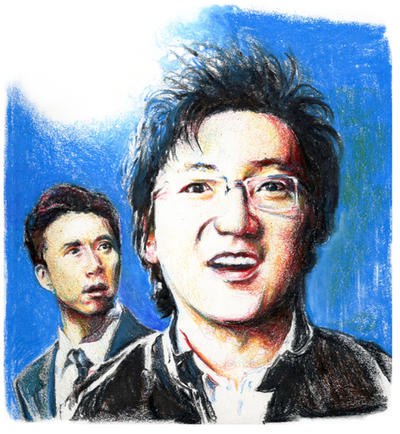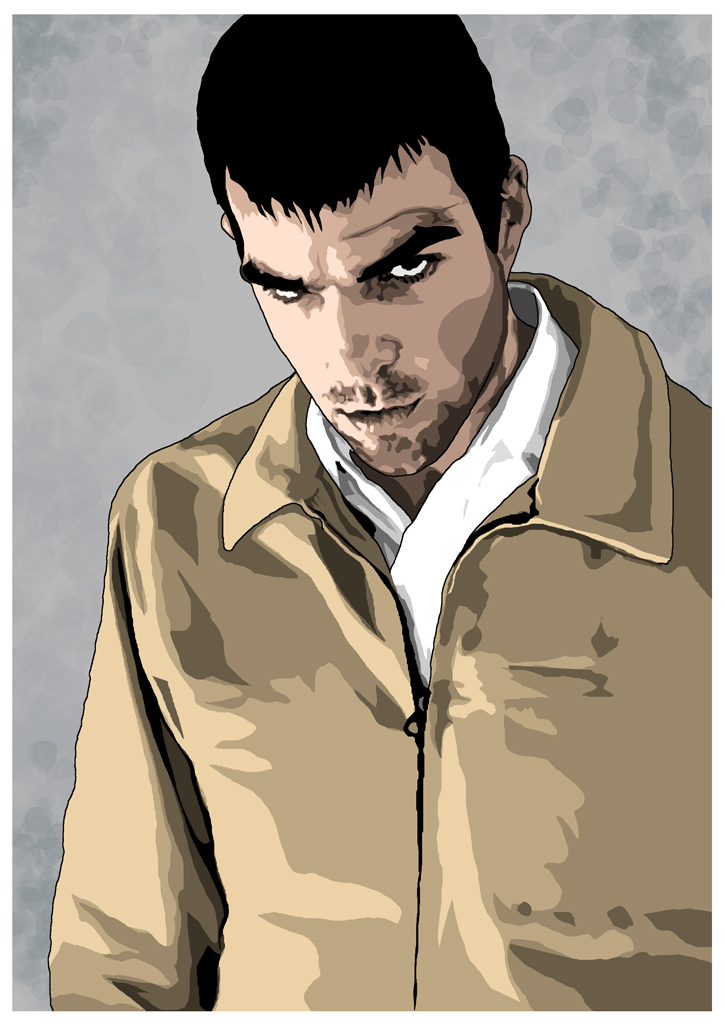Charles Darwin is the most significant philosophical influence upon the philosophy of Heroes. Similar to X-Men, the super-natural abilities found in Heroes are based upon evolutionary processes.
As our Little History of Philosophy notes, this is interesting since Darwin's ideas are primarily biological. However, the implications of his theories, both evolution and natural selection, significantly influence all three aspects that my midterm will cover (fate, morality, and identity).
A genre-based series, Heroes follows a familiar development. Ordinary people (a politician nurse, artist, cheerleader, professor, police officer, and office worker) soon discover that they are no longer that ordinary. What makes Heroes different is how it deviates from the typical hero-path. This is not a series where you see Peter Parker web-swinging about New York city and rescuing damsels in distress.
If you had super-powers, why would you have them?Throughout the series there is a struggle between an-overarching purpose (destiny) and self-defined purpose (choice). The two characters that best represent these two extremes are Hiro and Syler.
A Korean office worker who discovers that he can manipulate time and space, Hiro is a 'failure' at life. Unable to meet his father's expectations as a business success, he immerses himself into his comic books. A modern Don Quixote, Hiro interprets life as a comic book, one in which he has an important and real destiny. Hiro's philosophy mirrors that of Georg W.F. Hegel's, an optimist that believed that there was purpose in the chain of human events. Ando, Hiro's best friend, scoffs at this, but soon comes to believe it himself.
"Every hero is on a journey to find his place in the world. But it's a journey. You don't start at the end, otherwise they can't make a movie about it later." ~ Ando
Syler, the villain of the series, comes to a similar Darwinian conclusion as Friedrich Neitzche comes to. "God is dead." Neitzche concluded (or perhaps as he was interpreted) that in the absence of God we define our own purpose. For Neitzche, the culmination of this was his idea of the Ubersmench, or super-man. Syler, similar to the Nazis, takes the idea of the Ubersmench to a disturbing conclusion.
"What you can do, what I can do, that is God. Respect it accordingly." ~ Syler
Syler uses this as a justification for the choices that he makes during the series. He even goes further that that, saying that they are necessary. He is a force of natural selection, survival of the fittest, and the weak will and must fall.
Do we have purpose, or do we create our own? This is a question that we all face. Heroes, as far as I have watched it, does not make a conclusive statement. Interestingly, much of the plot is driven by vague purpose after vague purpose (Remember Lost? [link has a lot of language, but I can understand Hitler's frustration]). The series seems to offer that the belief in fate, whether it is true or not, is still useful. As William James would say, it's cash value makes it a practical truth. Perhaps because the alternative, that we choose our own fate, can lead us to conclusions such as Syler's.
Do we have purpose, or do we create our own? This is a question that we all face. Heroes, as far as I have watched it, does not make a conclusive statement. Interestingly, much of the plot is driven by vague purpose after vague purpose (Remember Lost? [link has a lot of language, but I can understand Hitler's frustration]). The series seems to offer that the belief in fate, whether it is true or not, is still useful. As William James would say, it's cash value makes it a practical truth. Perhaps because the alternative, that we choose our own fate, can lead us to conclusions such as Syler's.
"We all imagine ourselves the agents of our destiny, capable of determining our own fate. But have we truly any choice in when we rise? Or when we fall? Or does a force larger than ourselves bid us our direction? Is it evolution that takes us by the hand? Does science point our way? Or is it God who intervenes, keeping us safe?" ~ Mohinder
(P.S: Mohinder, a geneticist in search for these "super-heroes," records different voice-overs during the series, typically at the beginning and end of each episode. He is essentially the show's philosophical voice.)
(P.S: Mohinder, a geneticist in search for these "super-heroes," records different voice-overs during the series, typically at the beginning and end of each episode. He is essentially the show's philosophical voice.)



No comments:
Post a Comment
Note: Only a member of this blog may post a comment.